The Monthly Novena to the
Miraculous Infant Jesus of Prague
There are two standard Novenas to the Infant Jesus of Prague – the one we will use below and the other for the Feast on 2 January. The Monthly Novena attracts Indulgences (see Note below).
“The more you honour Me,
the more I will bless you.”
Meanwhile, new afflictions visited the community. A pestilence broke out in the City. The prior, too, became dangerously ill. When his attention was called to the Divine Infant, he vowed to say Holy Mass before the image for nine successive days.
He at once felt relief and in a few days was completely restored to health. He fulfilled the vow, assigned a separate cell to the Statue and from that time forward became a fervent promoter of veneration of the Miraculous Infant.
The Infant’s Patronage is especially sought for:
vocations, good health, financial issues, a holy family life, schools, the welfare of children, freedom and peace, the missions and safety in travel.
The Eighth Day
THE NOVENA PRAYERS
- Eternal Father, I offer to Thy honour and glory,
for my own salvation and that of the whole world,
the Mystery of the Birth of our Divine Saviour.
Glory be to the Father, etc. - Eternal Father, I offer to Thy honour and glory
and for my eternal salvation and that of the whole world,
the sufferings of the most holy Virgin and of St Joseph,
in that long and weary journey from Nazareth to Bethlehem.
I offer Thee the sorrow of their hearts
when they found no place wherein to shelter themselves,
when the Saviour of the world was born.
Glory be to the Father, etc. - Eternal Father, I offer to Thy honour and glory
and for my eternal salvation and that of the whole world,
the sufferings of Jesus in the stable where He was born,
the cold He endured, the swaddling clothes which bound Him,
the tears He shed and His tender Infant cries.
Glory be to the Father, etc. - Eternal Father, I offer to Thy honour and glory
and for my eternal salvation and that of the whole world,
the pain which the Holy Child Jesus felt in His tender body,
when He submitted to circumcision.
I offer Thee that Precious Blood which then,
for the first time He shed for the salvation
of the whole humanrace.
Glory be to the Father, etc. - Eternal Father, I offer to Thy honour and glory
and for my eternal salvation and that of the whole world,
the humility, mortification, patience, charity,
all the virtues of the Child Jesus
and I thank Thee and I love Thee
and I bless Thee without end,
for the ineffable Mystery of
the Incarnation of the Divine Word.
Glory be to the Father, etc.
The Word was made Flesh,
And dwelt among us.
LET US PRAY
O God, Whose Only-begotten Son
was made manifest to us in the substance of our flesh,
grant, we beseech Thee, that through Him,
Whom we acknowledge to be like unto ourselves,
our souls may be inwardly renewed.
Who liveth and reigneth with Thee
forever and ever.
Amen.
7 years Indulgence each day, if the above prayers are recited on the 9 days preceding the 25th of any month. Plenary Indulgence under the usual conditions, when the Novena is completed. (125)
More about the Infant:
https://anastpaul.com/2023/01/02/saint-of-the-day-2-january-feast-of-the-infant-jesus-of-prague/

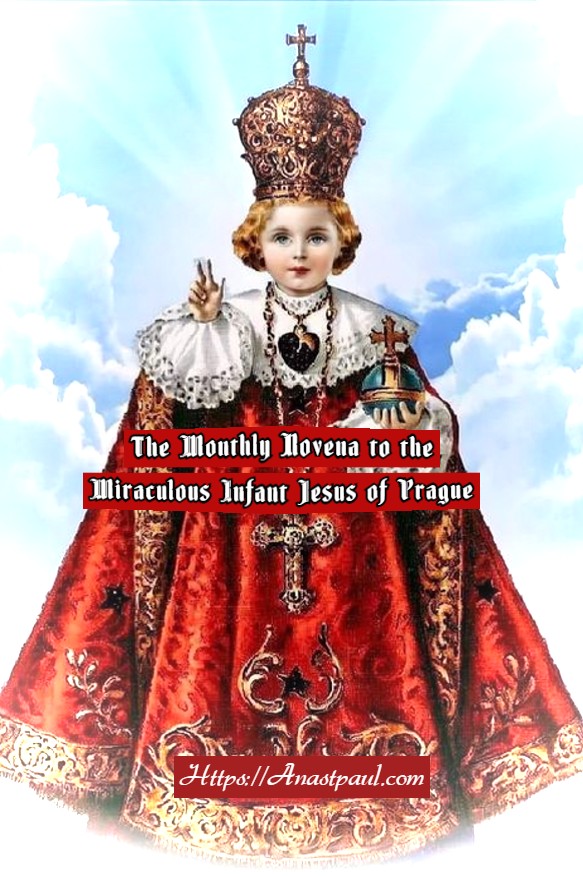

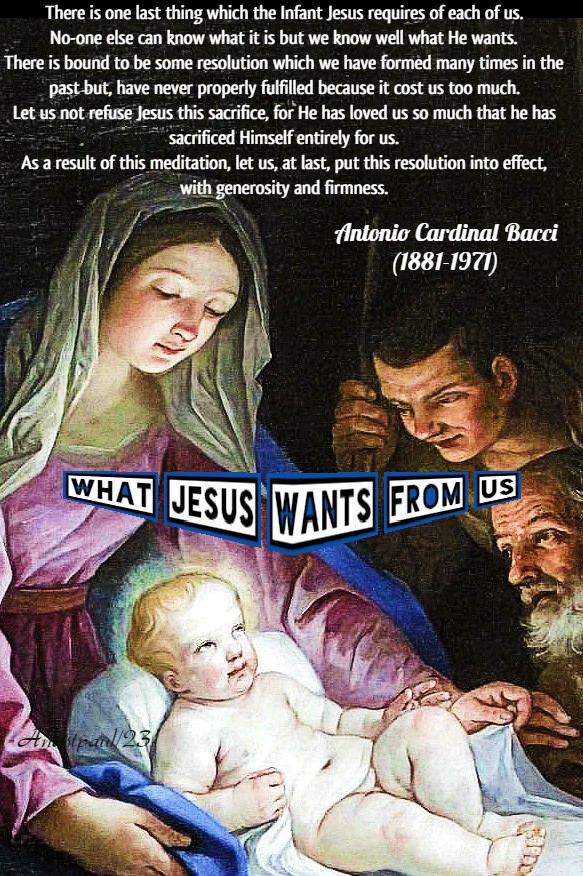
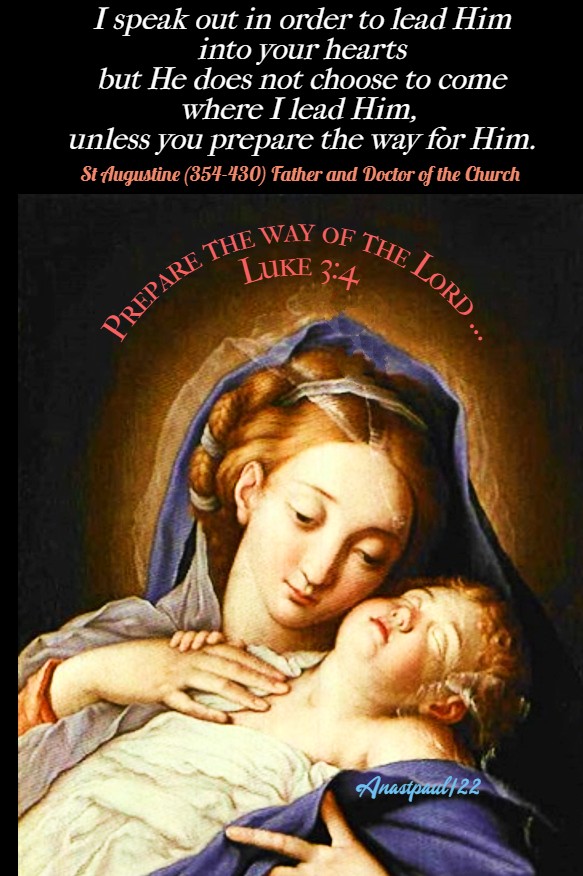
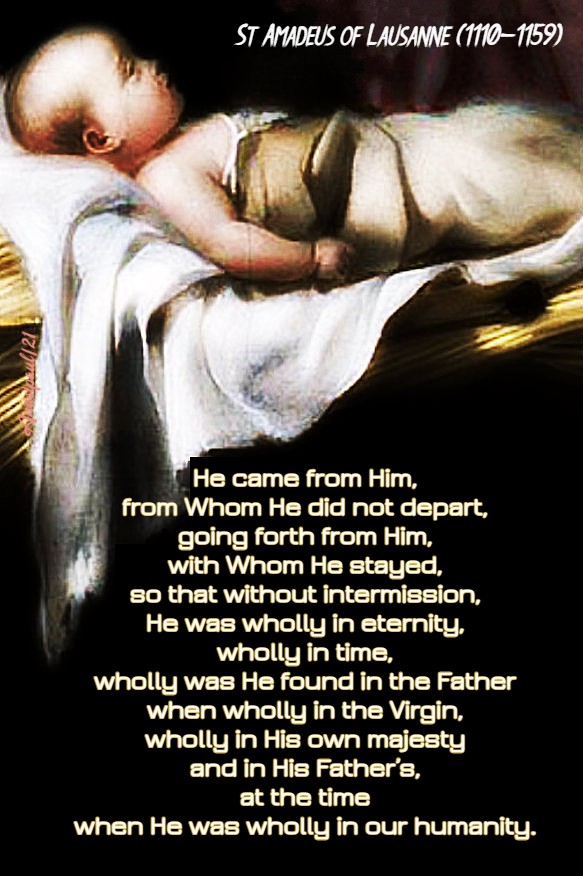
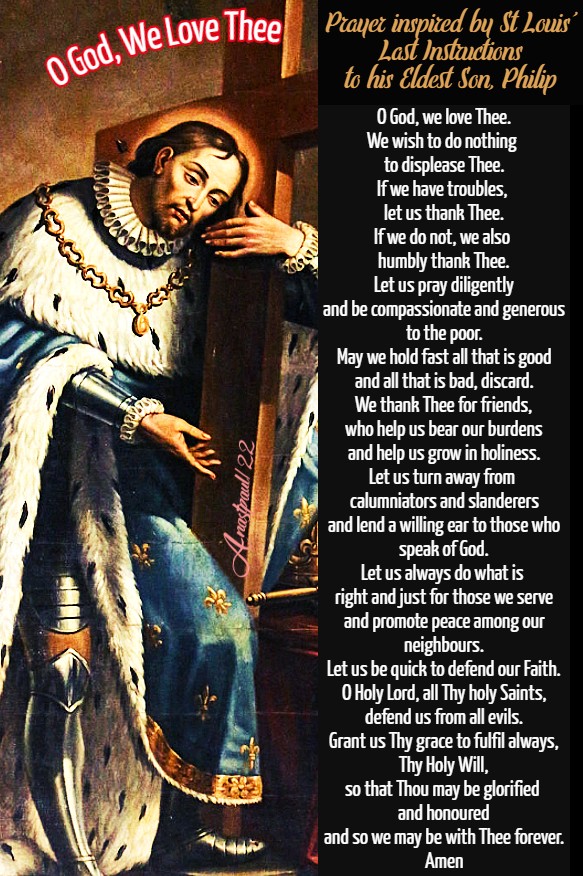
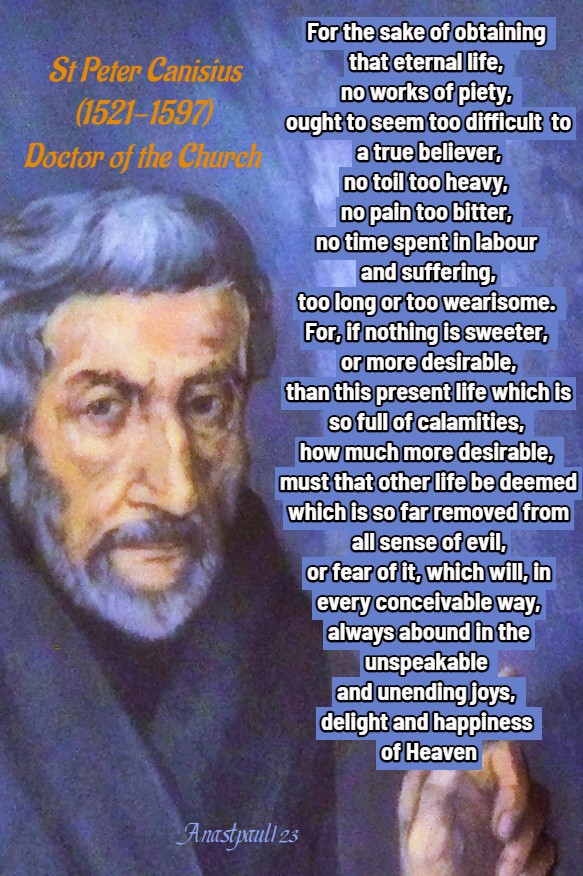
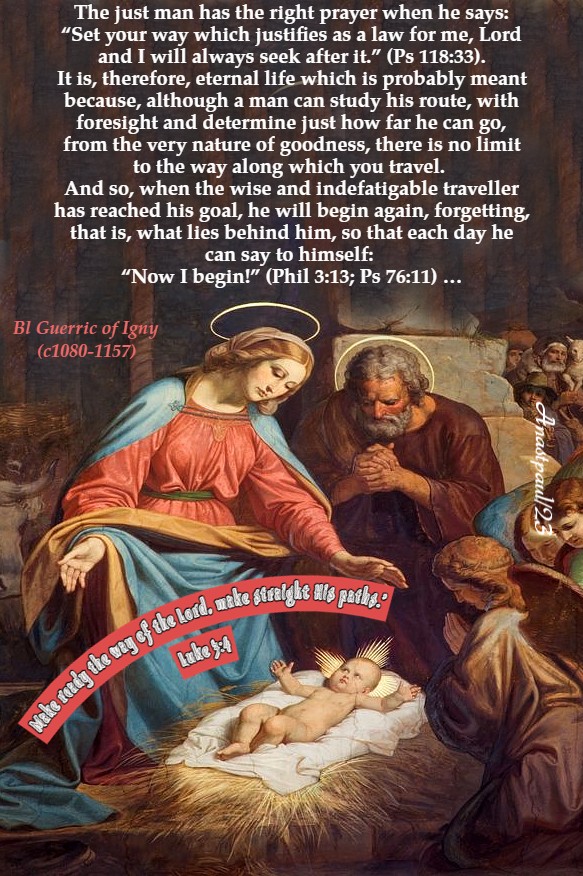
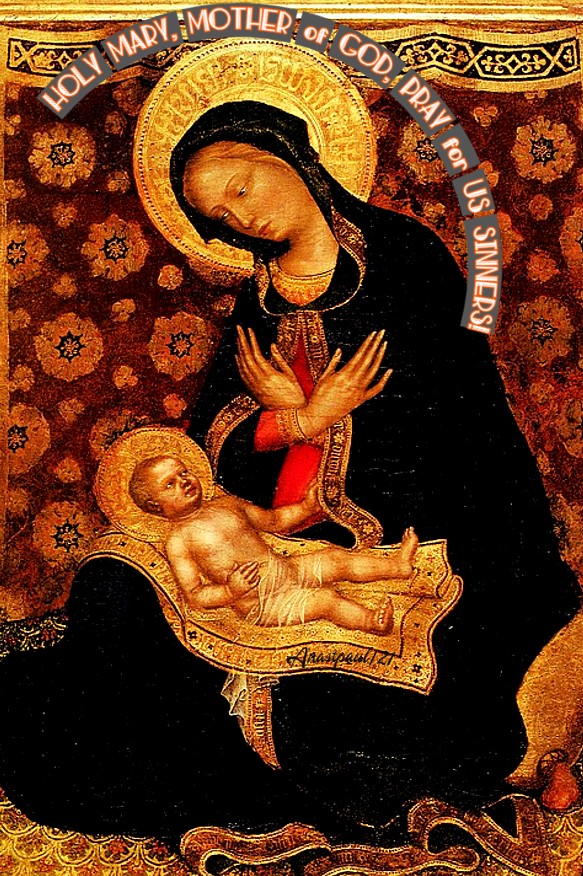
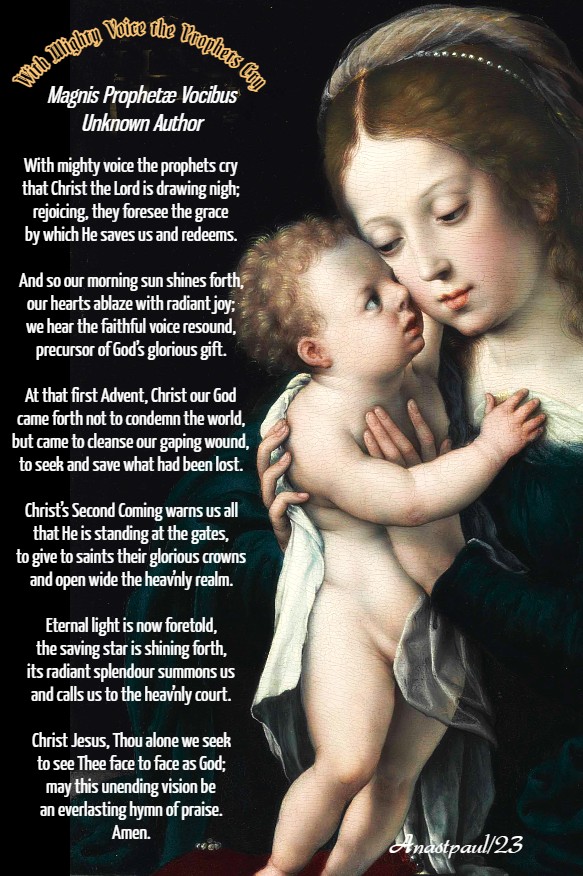
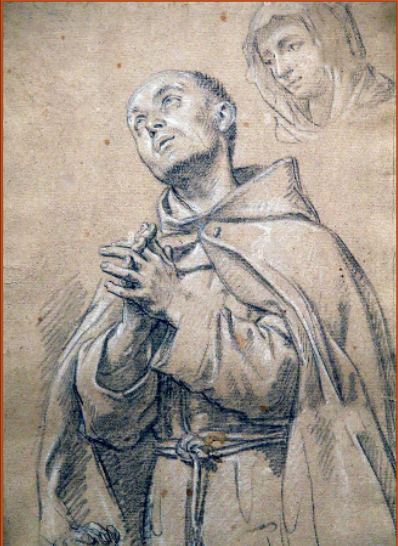
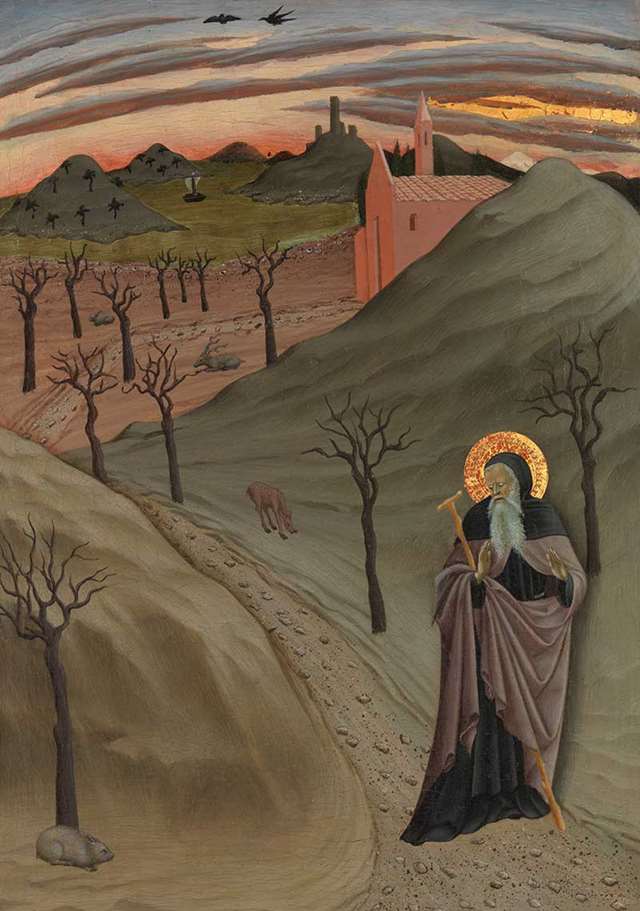

You must be logged in to post a comment.